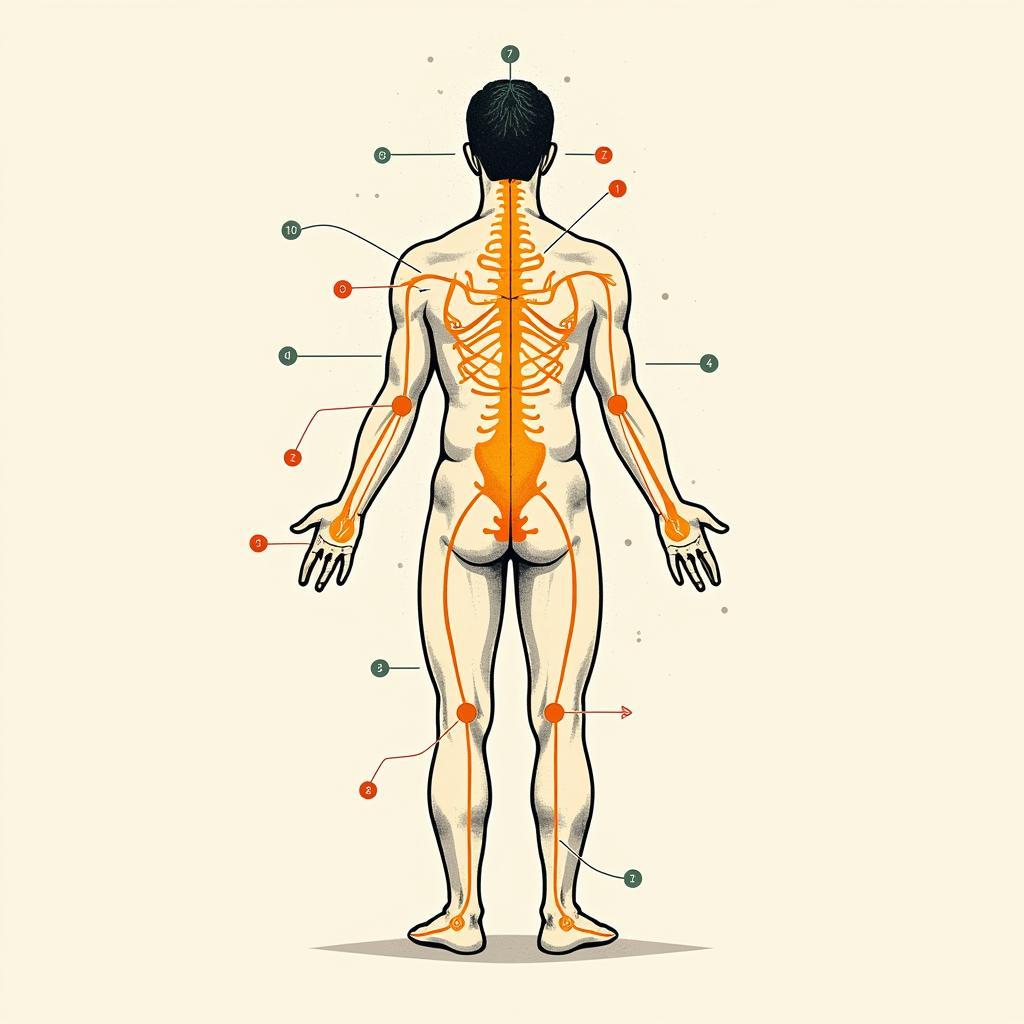Qi, the vital energy that flows through all living things according to traditional Chinese medicine, often finds itself at odds with the scientific method. While research demands empirical evidence and rigorous analysis, qi remains a concept largely based on subjective experience and ancient wisdom. But does this mean the two are inherently incompatible? Can we bridge the gap between qi and research to gain a deeper understanding of both?
The Elusive Nature of Qi
Defining qi proves to be a significant challenge. Often translated as “life force” or “energy flow”, qi encompasses a broad spectrum of experiences, from physical sensations like warmth or tingling to more subtle perceptions of energy fields and emotional states. This inherent subjectivity makes it difficult to quantify or measure qi using conventional scientific instruments.
 Illustration of Qi Energy Flow
Illustration of Qi Energy Flow
Research Challenges and Approaches
The subjective nature of qi presents a formidable obstacle for researchers. Traditional research methodologies rely on objectivity and replicability, which are difficult to achieve when studying a phenomenon that varies greatly between individuals and contexts.
However, this doesn’t mean that research on qi is impossible. Emerging fields like bioenergetics are exploring ways to measure subtle energy fields around the human body using techniques like electroencephalography (EEG) and electromyography (EMG). While these methods don’t directly measure qi, they can potentially provide insights into the physiological correlates of qi experiences.
Bridging the Gap: Qi and Evidence-Based Practice
Rather than viewing qi and research as opposing forces, a more productive approach might be to explore their potential synergy. For instance, many proponents of Traditional Chinese Medicine (TCM) advocate for an evidence-based approach, incorporating rigorous research methods to evaluate the effectiveness of TCM practices like acupuncture and qigong.
 Acupuncture Treatment in Progress
Acupuncture Treatment in Progress
“While we may not fully understand the mechanisms of qi,” explains Dr. Li Wei, a leading researcher in TCM, “we can still study its effects using standardized protocols and outcome measures. This allows us to build a body of evidence that can inform clinical practice and potentially lead to new discoveries.”
The Future of Qi and Research
As our understanding of both energy and consciousness evolves, the intersection of qi and research promises to become an increasingly fertile ground for exploration. By embracing a multidisciplinary approach that combines ancient wisdom with modern scientific tools, we may unlock new possibilities for healing, well-being, and our understanding of the fundamental nature of life itself.
FAQs about Qi and Research
1. Can science prove the existence of qi?
Science hasn’t definitively proven or disproven the existence of qi. Research is ongoing to explore its potential physiological correlates.
2. Is there any evidence that qi practices work?
Some studies suggest potential benefits of practices like acupuncture and qigong, but more research is needed.
3. How can I learn more about qi?
Exploring resources on TCM, qigong, and bioenergetics can offer insights into qi.
4. Can I enhance my qi?
Practices like qigong, tai chi, and meditation are believed to cultivate and balance qi.
5. Where can I find credible research on qi?
Reputable journals focusing on TCM, complementary medicine, and bioenergetics often publish research related to qi.
Need Support?
For any inquiries or assistance, feel free to reach out to us:
- Phone: 0904826292
- Email: research@gmail.com
- Address: No. 31, Alley 142/7, P. Phú Viên, Bồ Đề, Long Biên, Hà Nội, Vietnam
Our dedicated customer support team is available 24/7 to assist you.